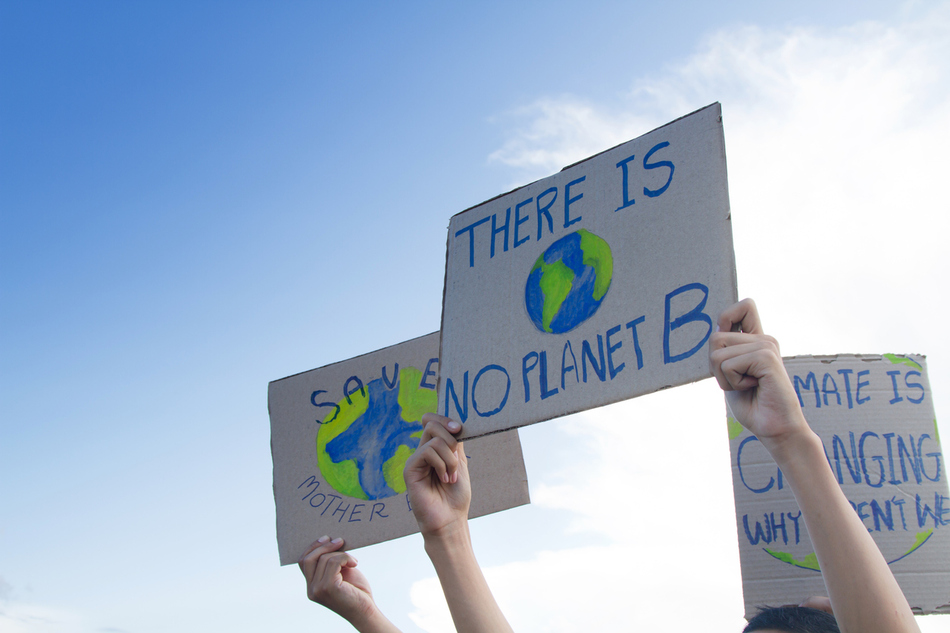Do you surround yourself with people who tend to think like you? So many of us do; we find friends who have similar interests and beliefs, but what do you do when friends or family members don’t understand a topic you feel passionately about?
Having conversations about climate change with the people around us can be a great way to get the ball rolling on someone’s own climate journey and help inspire them to take action in their own lives. People can be reluctant and you may feel uncomfortable at first, but many people may be encouraged when someone they care about shows their own interest and shares their personal history with living a more climate conscious lifestyle. These climate conversations may be the start of small simple changes that will help us all. We have all have heard the old adage that one small change can make a huge difference, but who do you start with and where do you start?
Who should I talk to? Where do I start?
There are so many people in the world, where do you start? Your family and friends are people that you not only know, but have a close relationship with and chances are they will be the most willing to listen and learn from you as someone they care about.
Do you know that your family and friends are already all eco-heroes? Great! Why not reach out to work colleagues, neighbors, etc? While it may seem a little bit scary to put yourself out there but you might be surprised by their reaction. In fact, many people understand that climate change is happening and will be interested to engage in a conversation that helps keep them informed and learning new things, after all, humans are curious by nature!
How should I have my conversation?
Now that you’ve decided who you want to talk to, how do you talk to them? People are most receptive to taking action on things they can relate to, value, or are interested in. Someone who loves to cook may be interested in the impacts of shopping local and farming on both our local landscape and carbon emissions, you can help make these connections! Some of the best ways to help build connections and make the conversation effective are to share your own stories, who made you care, your own concerns, or what you are doing to help. By sharing that you became interested in the impacts of transportation on carbon emissions after sitting in traffic on your way to work, others may relate to your stories or see that climate issues intersect many places in our lives.
Another way to continue the conversation is to ask the person questions. Things like ‘do you know what our community is doing about climate change?’ could be a great way to spark an interest and keep the conversation going. Concord has taken many actions to help lower our emissions and combat climate change, do you know about our biannual Drop-Off Swap-Off? How about our heating and cooling coaches? Did you know you can get an energy or water audit to help save you money and make your home more sustainable? There are so many ways to take action and lots of information on concordma.gov/sustainability!
Some people love to have resources to look at and learn more but sending dull articles are unlikely to peak their interest, instead look at some of the engaging models, comparison data, or information like how various states make electricity. While looking at climate information can feel like a lot of doom and gloom, keeping things light and positive about progress that is being made can help encourage people to keep going and engage with the subject matter. Research has shown that humor makes people feel more hopeful about makes it easier to engage with people. Having quick and easy facts to share can also be a great thing to weave into conversation to get a conversation started. Facts like that an energy-smart clothes washer can save more water in one year than one person drinks in an entire lifetime!
How do I get started?
These aren’t necessarily easy conversations to have but they are important ones. The easiest and best way to get into a climate conversation is to make an easy transition. Weave it into conversation when it seems right, don’t try to force it – that could make it awkward! If a family member mentions their need to go grocery shopping, maybe tell them about a new reusable bag you got that you love to use or if a friend brings up how they want to look at getting a new car, ask them if they’ve considered electric as there are so many new options available now. The best way to talk to someone is to wait for the best time and work it into conversation, a little foot-hold can go a long way!
Now that we’ve covered some tips and tricks for talking about climate to people in your life, why don’t you give it a try? It may be easier than you think and may make a big difference. Don’t forget, engagement from someone they have a relationship with makes climate conversation more meaningful and seem more like a great idea, rather than a lecture. Climate conversations can help beyond getting your friend to use a reusable water bottle, it can help Concord reach our climate goals of 80% reduction in greenhouse gas emissions (GHG’s) by 2050, read the plan and get inspired to make change yourself! For more inspiration, watch climate scientist Katharine Hayhoe explain why the most important thing you can do to fight climate change is to talk about it, in her 2018 TED Talk.
Previous Post
Comfort and Sustainability with Heat Pumps
Next Post
Do you have “20/20” recycling vision?

